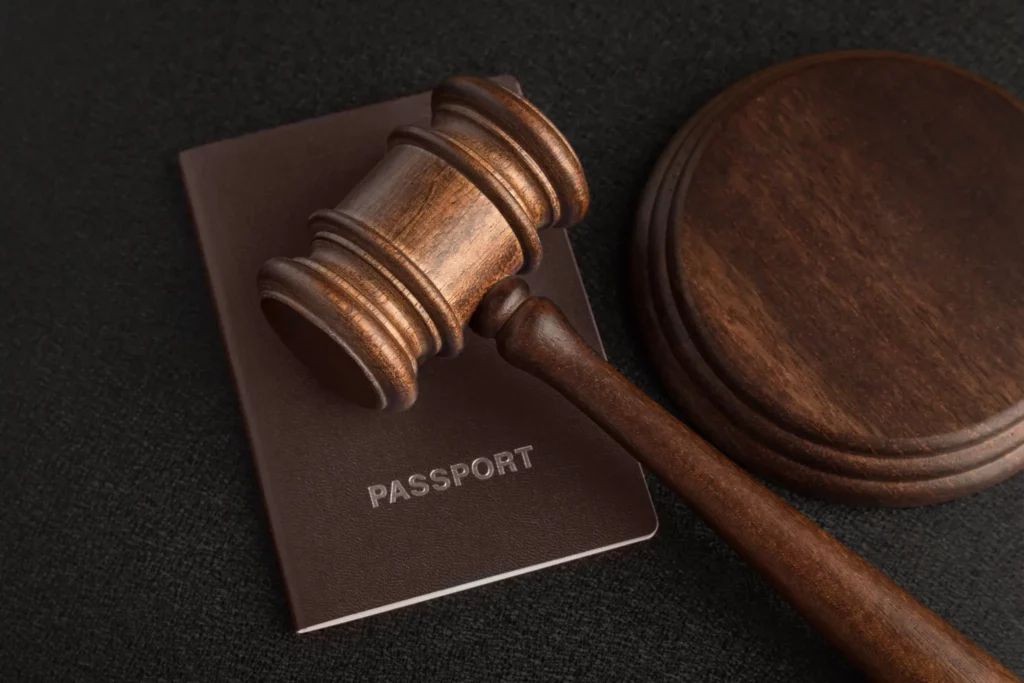Private wealth law is an essential area in the legal field that focuses on the management, protection, and transfer of wealth. Whether you are an individual with significant assets or part of a family legacy, understanding private wealth law can significantly impact your financial well-being. This article explores various aspects of private wealth law, highlighting its importance and the role of legal experts in navigating this complex field.
Understanding Private Wealth Law
Definition and Importance of Private Wealth Law
Private wealth law refers to the legal practices associated with the management and transfer of wealth, primarily focusing on high-net-worth individuals and families. It encompasses a range of issues, including estate planning, tax mitigation, trust formation, and asset protection. The significance of private wealth law lies in its ability to ensure that assets are effectively managed to meet the financial objectives of an individual or family.
The importance of this branch of law cannot be overstated. With effective planning, families can preserve their wealth across generations, minimize tax liabilities, and protect their assets from potential legal disputes. In a rapidly changing financial landscape, the expertise of private wealth attorneys becomes crucial in navigating complicated legal requirements and regulations. Furthermore, as global markets evolve and new financial instruments emerge, the role of private wealth law adapts to address these complexities, ensuring that clients are not only compliant but also strategically positioned for future growth.
Key Principles of Private Wealth Law
Understanding the key principles of private wealth law is crucial for effectively managing and preserving assets. These principles include:
- Asset Protection: Safeguarding assets from claims of creditors and legal disputes.
- Tax Efficiency: Structuring financial transactions to minimize tax implications.
- Succession Planning: Establishing a clear and legally binding plan for asset distribution after death.
- Confidentiality: Maintaining privacy in financial matters, critical for high-net-worth individuals.
These principles guide individuals and families in their decision-making processes concerning wealth management, ensuring legal compliance and aligning with individual goals. Additionally, the integration of modern technology into wealth management practices has led to innovative solutions that enhance these principles. For instance, digital asset management and blockchain technology are becoming increasingly relevant, offering new avenues for asset protection and transparency. As families navigate these advancements, understanding the intersection of private wealth law and technology becomes essential for maintaining a competitive edge in wealth preservation strategies.
The Role of a Private Wealth Lawyer
Duties and Responsibilities
Private wealth lawyers serve as trusted advisors to individuals and families, helping them navigate the complexities of wealth management. Their duties and responsibilities typically encompass a range of activities:
- Legal Consultation: Providing expert legal advice on various wealth-related matters.
- Drafting Legal Documents: Creating wills, trusts, and other necessary documents to facilitate asset management.
- Litigation Support: Representing clients in disputes related to asset distribution or management.
- Tax Advice: Offering strategies to maximize tax efficiency and ensure compliance with tax laws.
These responsibilities make private wealth lawyers indispensable in forming comprehensive strategies tailored to each client’s specific needs. They often work closely with financial advisors, accountants, and other professionals to ensure that all aspects of a client’s wealth are managed cohesively. This collaborative approach not only enhances the effectiveness of the strategies implemented but also ensures that clients receive well-rounded advice that considers all angles of their financial landscape.
How They Can Help Manage Your Assets
Private wealth lawyers play a pivotal role in asset management by providing personalized legal strategies that align with clients’ financial goals. Their assistance can manifest in various ways, including:
- Creating Comprehensive Wealth Plans: Developing holistic strategies that encompass all facets of wealth management.
- Negotiating with Multiple Parties: Acting as intermediaries in estate planning and asset transfer negotiations.
- Reviewing Investments: Assessing investment opportunities from a legal perspective to mitigate risks.
- Advising on Regulatory Compliance: Ensuring that clients adhere to all relevant laws and regulations.
Through these activities, private wealth lawyers provide peace of mind, allowing clients to focus on their personal and professional endeavors. Additionally, they often assist clients in understanding the implications of their financial decisions, such as the impact of charitable giving or the establishment of family foundations. By educating clients about various options and potential outcomes, private wealth lawyers empower them to make informed choices that align with their values and long-term aspirations. This proactive approach not only safeguards wealth but also fosters a sense of security and confidence in the client’s financial future.
Asset Management Strategies in Private Wealth Law
Estate Planning
Estate planning is a cornerstone of private wealth management, involving the strategic arrangement of how assets will be distributed upon death. It includes drafting wills and trusts that reflect the individual’s wishes and ensure a smooth transition of wealth.
A comprehensive estate plan not only addresses the distribution of assets but also considers potential tax implications and the wishes of beneficiaries. Effective estate planning requires ongoing review and adjustments to adapt to changes in personal circumstances or legislation. This may involve revisiting the estate plan after significant life events, such as marriage, divorce, the birth of children, or the acquisition of new assets. Regularly updating these documents ensures that they remain aligned with the individual’s current intentions and financial situation, thereby safeguarding the interests of heirs and minimizing potential disputes.
Trust Formation and Management
Trusts have become an essential tool in private wealth management due to their versatility and benefits regarding asset protection and tax planning. Private wealth lawyers can assist clients in forming various types of trusts, such as revocable living trusts, irrevocable trusts, and special needs trusts.
Once established, the management of trusts requires ongoing oversight to ensure compliance with the terms and to adapt to changing circumstances. This often involves regular communication with trustees and beneficiaries to maintain aligned objectives. Additionally, trustees must be well-versed in fiduciary duties, as they are responsible for managing trust assets prudently and in the best interest of beneficiaries. This may include investment decisions, distributions, and ensuring that the trust’s terms are executed as intended, which can be particularly complex in multi-generational trusts where family dynamics may evolve over time.

Tax Planning and Mitigation
Effective tax planning is critical to retaining wealth over time. Private wealth lawyers employ strategies that minimize tax liabilities through various techniques, such as charitable donations, tax-efficient investment vehicles, and trust structures.
Furthermore, as tax laws frequently change, having an expert advisor ensures that clients remain compliant and take advantage of potential benefits. This proactive approach not only reduces tax burdens but also enhances overall wealth preservation strategies. For instance, clients may benefit from tax-loss harvesting or employing strategies to defer taxes on capital gains. Additionally, understanding the implications of estate taxes and gift taxes can lead to more informed decisions about asset transfers, ultimately preserving more wealth for future generations. By leveraging these strategies, individuals can create a robust financial legacy that reflects their values and supports their philanthropic goals. Learn more about migration law: your guide to navigating immigration challenges.
Choosing the Right Private Wealth Lawyer
Factors to Consider
Choosing a private wealth lawyer is a significant decision that can impact your financial future. Several factors must be considered:
- Experience: Look for a lawyer with a proven track record in private wealth law.
- Specialization: Ensure the lawyer specializes in areas relevant to your needs, such as estate planning or tax law.
- Compatibility: Choose someone you feel comfortable discussing personal financial matters with.
- Reputation: Research reviews and testimonials from clients to gauge their reliability and effectiveness.
Investing time in selecting the right lawyer can result in a more effective partnership that meets your wealth management goals. A well-chosen lawyer not only provides legal expertise but also serves as a trusted advisor, guiding you through complex financial landscapes. Their insights can help you navigate potential pitfalls and seize opportunities that align with your long-term financial vision. Furthermore, a lawyer with a comprehensive understanding of your unique circumstances can tailor strategies that reflect your personal values and aspirations, ensuring that your wealth is managed in a way that resonates with your life goals.
Questions to Ask Potential Lawyers
When interviewing potential private wealth lawyers, consider asking the following questions:
- What is your experience in private wealth law?
- How do you stay informed about changes in wealth management laws?
- Can you provide references from clients with similar needs?
- How will you approach our relationship, and what can I expect in terms of communication?
The answers to these questions will help clarify each lawyer’s approach and determine their suitability for your needs. Additionally, inquire about their fee structure and billing practices to ensure transparency and alignment with your budget. Understanding how they charge—whether it’s hourly, flat fees, or a retainer—can significantly affect your financial planning. Moreover, discussing their approach to conflict resolution and their willingness to collaborate with other financial professionals, such as accountants or investment advisors, can provide insight into how they will integrate into your existing wealth management team. This holistic view will enable you to make a more informed decision about the lawyer who will best support your financial journey.
The Future of Private Wealth Law
Emerging Trends
As the financial landscape continues to evolve, private wealth law is also adapting to new challenges. Emerging trends include increased focus on sustainability and responsible investing, where clients seek legal guidance on aligning their investments with personal values. This shift is not only about ethical considerations; it also reflects a growing recognition that sustainable investments can yield competitive financial returns. Wealth managers are now tasked with integrating environmental, social, and governance (ESG) criteria into investment strategies, prompting a need for legal frameworks that support these initiatives.
Additionally, there is a growing emphasis on cross-border estate planning as wealth becomes increasingly globalized. This requires private wealth lawyers to possess knowledge of various jurisdictions and their respective laws. Clients often have assets spread across multiple countries, necessitating a comprehensive understanding of international tax implications, inheritance laws, and compliance requirements. As families become more mobile, the importance of establishing clear and enforceable estate plans that respect the legal nuances of different countries cannot be overstated. This complexity is further compounded by the rise of digital assets, which introduce unique challenges in terms of ownership and transferability.

Impact of Technology on Private Wealth Law
Technology is revolutionizing private wealth law through innovations that streamline legal processes and enhance communication. Online platforms now provide more accessible tools for estate planning and asset management. These digital solutions not only facilitate easier collaboration between clients and their legal advisors but also empower clients to take a more active role in managing their wealth. Virtual consultations and digital document management systems are becoming the norm, allowing for greater flexibility and efficiency in legal services.
Furthermore, artificial intelligence is being utilized to analyze large data sets, offering insights that can inform legal strategies. Predictive analytics can help lawyers anticipate potential legal challenges and identify opportunities for asset protection. However, with these advancements comes the need for robust cybersecurity measures to protect sensitive financial information. As private wealth law increasingly intersects with technology, legal professionals must remain vigilant against cyber threats, ensuring that client data is safeguarded against breaches and unauthorized access. The integration of blockchain technology also presents exciting possibilities for secure transactions and transparent record-keeping, further transforming the landscape of private wealth law.
In addition to these technological advancements, there is a rising trend toward personalized legal services. Clients are increasingly expecting tailored solutions that reflect their unique financial situations and aspirations. This demand is prompting private wealth lawyers to adopt a more client-centric approach, focusing on building long-term relationships and understanding the specific needs of each client. As the industry evolves, the ability to provide customized legal advice will be a key differentiator for successful private wealth law practices.




























